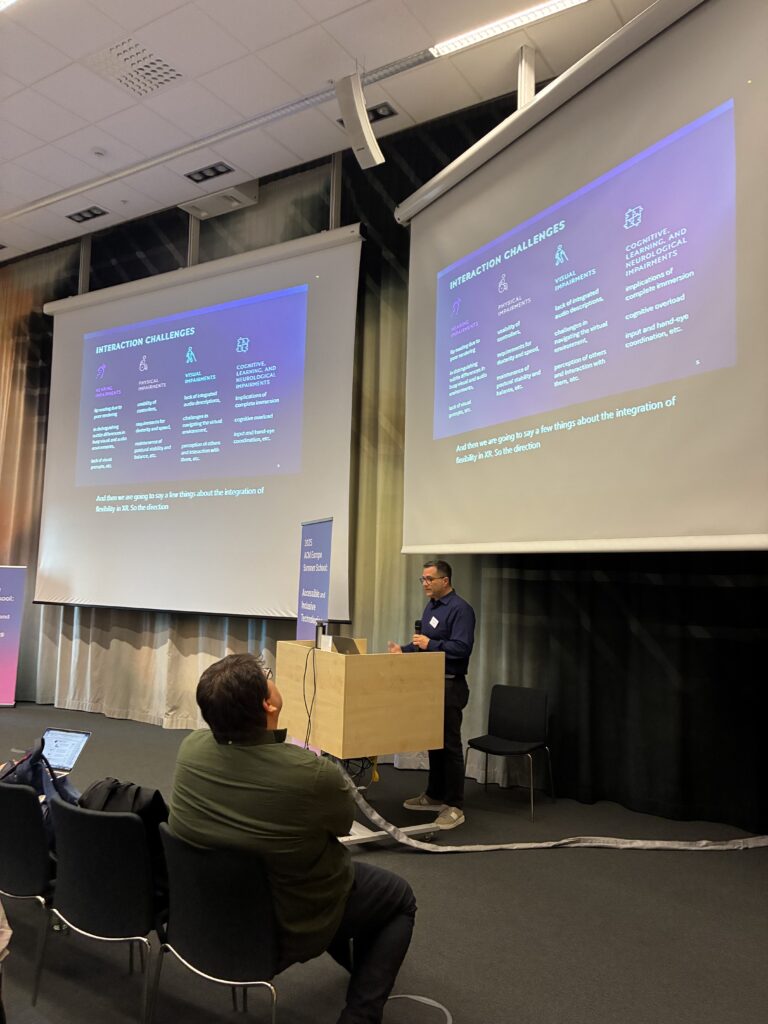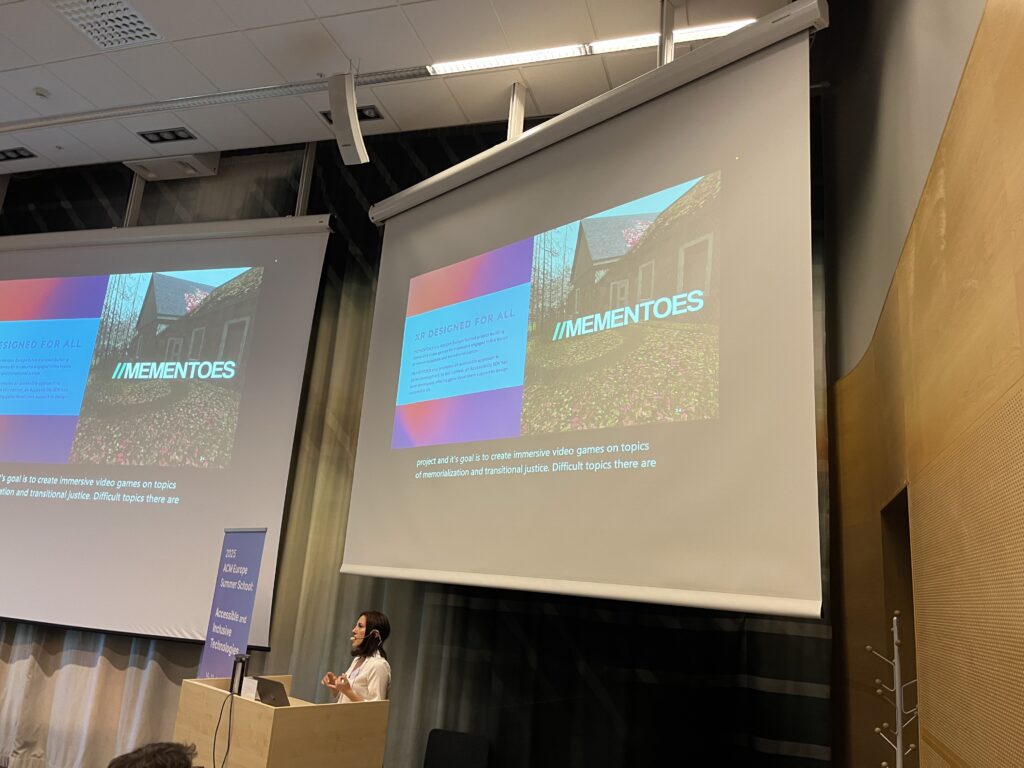
At the 2nd ACM Europe Summer School on Accessible and Inclusive Technologies, held from 16 to 19 June 2025 in Borås, Sweden, participants gathered to explore the intersection of technology, accessibility, and social inclusion. Among the highlights was an invited keynote talk titled “Designing for All: Advancing Accessibility and Inclusion in XR Environments” by Dr. George Margetis of the Institute of Computer Science at FORTH, representing the SHIFT project.
Co-presenting with Stavroula Ntoa from the MEMENTOES project – a SHIFT sister project, funded by the Horizon Europe Digital Cultural Heritage Cluster), Dr. Margetis introduced SHIFT’s accessible framework for inclusive museum exhibits, a groundbreaking approach designed to make immersive experiences in cultural heritage spaces accessible to all. Their presentation emphasized how inclusive XR (extended reality) technologies—when built with multimodal interaction and co-design methodologies—can engage a broad spectrum of users, regardless of physical or cognitive ability.

The keynote resonated strongly with the diverse audience of academics, PhD students, and industry professionals who are working to advance equity through technology. By spotlighting the collaborative development processes and practical applications behind SHIFT’s tools, the talk provided concrete inspiration for how accessibility can be integrated at every stage of digital innovation.
This keynote was more than just a presentation—it was part of a larger movement. The ACM Europe Summer School fosters a dynamic environment where research meets real-world impact. Through hands-on case studies, collaborative discussion, and a commitment to inclusivity, this year’s edition reaffirmed the importance of designing technologies that empower all individuals to access, engage with, and contribute to cultural heritage.
As XR technologies become more embedded in cultural spaces, SHIFT’s accessible framework offers a model for how to ensure no one is left out of the story.
